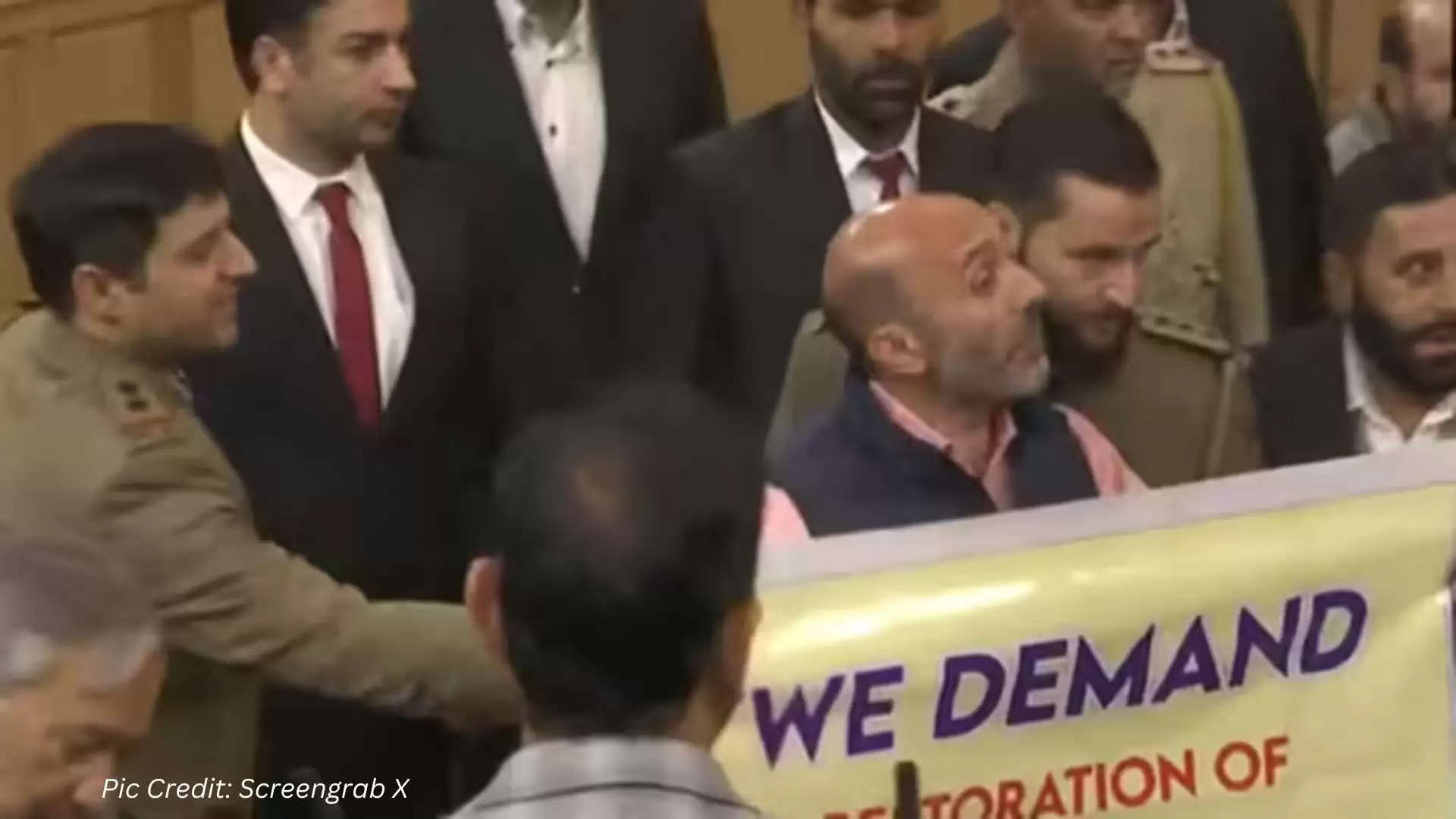Chaotic Scenes in J&K Assembly Over Article 370 Banner
Resolution for initiating dialogue towards restoration of special status to J&K was passed yesterday
November 7, 2024 – The Jammu and Kashmir Assembly in Srinagar witnessed chaotic scenes today following protest by BJP members against a resolution passed yesterday urging reinstatement of the special status to Jammu and Kashmir. A brawl ensued after Khurshid Ahmad Sheikh, brother of the jailed Baramulla MP Engineer Rashid, held up a banner calling for the restoration of Articles 370 and 35A. BJP members rushed into the well and as a protest snatched and tore up the banner.
The Speaker of the House, Abdul Rahim Rather, had to adjourn the proceedings briefly.
The Assembly session opened on November 4 for the first time after a gap of six years, but has since seen disruption and chaotic scenes. Members have clashed repeatedly on the topic of restoring special status to Jammu and Kashmir. A resolution urging the Centre to engage in discussions with elected representatives to restore Article 370 was passed yesterday and sent to the Jammu and Kashmir Chief Secretary for further action. The opposition BJP has been demanding its rollback.
Abrogation of Article 370
Article 370 was a provision in the Constitution that granted special autonomy to the region of Jammu and Kashmir. On August 5, 2019, the Government of India, led by Prime Minister Narendra Modi, moved to abrogate Article 370, effectively revoking the special status of Jammu and Kashmir. This move was done through a Presidential order and a resolution in Parliament, and it had several significant consequences.
The State was bifurcated into two Union Territories: Jammu and Kashmir (with a Legislative Assembly) and Ladakh (without a Legislative Assembly). This change meant that Jammu and Kashmir no longer had its own Constitution or autonomy over its internal affairs.
Jammu and Kashmir Under Article 370
Under Article 370 Jammu and Kashmir got special autonomy which meant it was given a special status within India. The State’s legislature had the power to make laws on all matters except those that were explicitly mentioned in the Union List (the list of areas under the exclusive jurisdiction of the central government).
Dual Citizenship: Jammu and Kashmir residents had a separate "State citizenship," which was different from the Indian citizenship. This meant that the laws of the Indian Constitution did not automatically apply to Jammu and Kashmir unless the State’s legislature agreed to it.
State Constitution: Jammu and Kashmir had its own Constitution, which came into effect in 1957. This constitution provided for the State’s own political system, government and laws.
Restricted Indian Laws: Only laws that were approved by the Jammu and Kashmir state government could apply to the region. The central government could extend its laws to the State only with the concurrence of the state government, except in matters relating to defense, foreign affairs, finance and communications.
Article 35A: This was an additional provision that arose out of Article 370, which provided the Jammu and Kashmir legislature the power to define "permanent residents" of the State and to extend special rights and privileges to them. These rights included exclusive access to government jobs, property ownership and other privileges in the State.
With media inputs
To join us on Facebook Click Here and Subscribe to UdaipurTimes Broadcast channels on GoogleNews | Telegram | Signal



